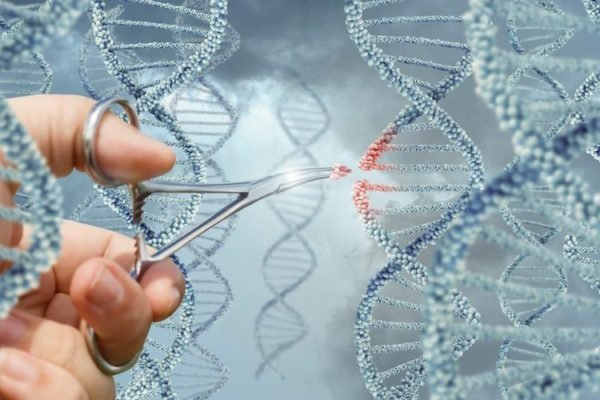Genes and crime
Since ancient times, people have been very sensitive about the continuation of their own kind. It was considered the duty of every full-fledged citizen of any religion, in any state, in any part of the world, to leave behind on this earth heirs. Descendants cherished the memory of their ancestors. Family members in the fifth and sixth knees could tell in detail about the merits and merits of their relatives who lived a hundred or two hundred years ago.
Genes and crime
Heredity presupposed similar traits of both appearance and character. The more the child was similar to his parents, the more love and spiritual warmth he received. If the offspring was strikingly different in some internal or external signs, it caused irritation, and sometimes even outright hostility of the father and cold alienation of the mother.
It was triple if a successor of a clan with criminal inclinations was born in a prosperous and God-fearing family. This was subjected to anathema, banished from the family and permanently erased his name from memory.

To be a criminal, since ancient times was considered shameful and immoral in almost all sectors of society. Wherever it went, if such individuals lived in the poor quarter, the poor slums - at the bottom of life. But already in more or less well-to-do families, there were no such people.
The determining factor in the formation of personality was the social environment. The poorer a man was, the more likely it was that his offspring would become criminals. Wealth and success practically nullified such a scenario. However, there were always exceptions, which, as we know, only confirms the rule.
Nowadays, in general, the situation is the same. In certain social circles, with decent parents and children grow law-abiding and deeply decent. In other segments of society, where the criminal picture leaves much to be desired, young people with pronounced criminal tendencies often form.
The world around us certainly influences a person’s actions, behavior, and aspirations. With this, no one argues. But how to deal with heredity. Whether a child is always born of a criminal who has perverse tendencies inherent in the character from the beginning — there is no definite answer to this question. Or is there?
Now, when such a delicate instrument as genetics is in the hands of people, voices are heard calling to believe that genes and crime are interconnected, and the latter is nothing other than genetic heredity. In other words, a person predisposed to violating laws has a gene or a set of genes that cause him to commit unlawful acts. These genes are inherited. As a result, the criminal appears again.
Maybe in another way: neither the mother nor the father has such genes, but the newborn already has them. Here everything depends on the genotype of a particular person. Inherited genes exist, as a rule, in duplicate. One is transmitted from the father, the other from the mother. The number of combinations of such forms tends to infinity. There is always the possibility that it is the most negative combination that will take a dominant position.
These theoretical calculations look very tempting for those who are very determined to destroy all crime. After all, if such genes are recognized at an early stage of human development, then they can be localized and thus rid society of criminals. Thieves, murderers, rapists will disappear. There will not even be bribe takers and child molesters. There will be complete idyll and general welfare.
It is unlikely that crime can be eradicated completely. Back in the 19th century, there was an opinion that the criminal environment is necessary for society. One of those who promoted this theory was the French sociologist Emile Durkheim (1858-1917). This respected scholar claimed that crime is a necessarily social phenomenon. She needs a man like a pike crucian.

Thanks to bandits, thieves, murderers, society do not stop in its development. Rotten rascals have positive functions: they create a certain environment, a psychological climate that constantly pushes people to progress. Anomaly is either too high or too low crime. If you ignore serious crimes, Themis will be forced to consider minor unseemly acts as serious violations of the law.
Proceeding from the fact that the social environment, the huge movements of the human masses are an integral part of the whole earth and together with the biological processes represent a single complex, then it becomes clear why nature linked together genes and crime. Linked something connected, only these genes still need to find.
Significantly in this matter have advanced scientists from the Institute of Psychiatry at the Royal College of London. Based on numerous studies, they proved that young men from dysfunctional families, having a special kind of one of the genes, nine times more often become violators of the law than their peers, brought up in similar cells of society, but not having such a specific genetic structure.

The criminal-minded guys had a serious defect in the gene responsible for the production of monoamine oxidase (MAO), which regulates the amount of a special type of chemical - the transmitter, through which brain neurons interact with each other. If it is too much or not enough - the subtle interaction of nerve cells is disturbed, the result is a neurological disorder.
Of those who were subjected to research, a low level of MAO was observed in 12%, but they gave 44% of all crimes. The remaining 88% accounted for 56%. The numbers speak for themselves - human genetic programs have a very serious impact on their perception of the surrounding reality. They also explain why not all young men from disadvantaged families become lawbreakers. In a certain way, balanced genes reliably protect them from negative behaviors.
The research results caused a wide resonance in the scientific community. Part of the scientists suggested that crime prevention is resolved. There is nothing easier than to conduct a mass survey of citizens, identify people with genetic abnormalities, put them on the account and try to reprogram the failing system.
Such optimists found opponents who said that a third of the living population has a lower level of MAO activity. It is at least unethical to hang out the stigma of a criminal on all these people.
In addition, there are a huge number of examples where citizens with similar genetic disruptions never violated even the rules of the road, and absolutely healthy and mentally balanced gentlemen turned out to be the organizers of massacres and key figures in other serious criminal offenses.
The question that genes and crime have a hard link has remained open, but a holy place is never empty. Not less popular are studies aimed at studying chromosomal abnormalities. It is based on the sex of a person and the biological signs associated with it that determine the set of sex chromosomes.
As you know, men present a set of XY chromosomes. Women have a different structure - XX. There are cases when anomalies occur in the embryo, and nature awards it with a double number of the male chromosome. Such a person all his life carries a reinforced kit - HUU.
Numerous studies have proven that carriers are ten times more likely to become criminals compared to those who have full openwork with chromosomes. There was even a quite stable opinion about the increased cruelty and aggressiveness of this group of people. To ignorant citizens, it might have seemed that the original source of all the evils was found on earth and that genes and crime are really inseparable.
But there is one small "but." The fact is that the number of those to whom the genes showed such generosity, only 0.2% of the total population of the planet. With all the effort, these people could not make the weather in criminal statistics due to their small number. It should also be added that among them only a quarter ever had problems with the law, the remaining 75% is quite adequate and law-abiding.
Much work has been done to identify the links between genes and crime in the Scandinavian countries. Here, under the close supervision of scientists, there were 14,000 people for 25 years. Moreover, all members of the control group were male, brought up in foster families and had biological fathers with or without previous convictions.
The studies were carried out comprehensively: observers tried to find out not only the genetic link between children and their biological fathers but also the impact of the social environment on the formation of personality.
As a result, a picture emerged showing that among the observables whose biological parents had problems with the law, there were significantly more criminals than among those who had law-abiding biological fathers. Observers also noted that the more convictions a father had, the higher his son’s risk of becoming a criminal.
A pattern was observed between the brothers. Even adopted by different families, they had similar criminal behavior. This concerned those whose fathers never violated the law, and those who were completely unlucky - their own parents practically never left the prison. Moreover, the second group of observables had more similar criminal tendencies.
At the same time, on the basis of these studies, it cannot be said that the criminal always generates the criminal. Only 14% of such descendants embarked on a slippery criminal path, the remaining 86% chose an honest lifestyle.
The family in which the observables were brought up also played an important role. Of their biological parents, 31% had a criminal past. Scions showed a more prosperous picture. In their midst, only 11% became criminals. Prevailed among them were those who had both a foster father and a biological one who broke the law.
The socio-economic status of adoptive parents was also considered. Natives of wealthy and educated families gave the lowest percentage of criminals. Those who grew up and were raised in an environment with low material wealth made up a much larger part of the criminal elements. The highest percentage of criminals was in poor families with low levels of education.
Scandinavian research has questioned the omnipotence of criminal genes. Their verdict was unequivocal: genes can trigger specific behaviors, but they do not have absolute power over people, that is, genes and crime are not related to each other by fatal dependence. This is the main difference between animal and man. The latter is guided by both the psychological characteristics of his character and the norms of behavior of the social environment in which he received an education.
In most cases, if the child spun among law-abiding and well-educated people, then he himself, as an adult, will behave accordingly. When life around is not sugar, but the criminal actions of senior mentors are a daily routine - the probability of a life-strewn streak of crime is very high for an unstable children's psyche.
And yet it should be noted that there are a huge number of examples where a well-educated and well-educated person walked with both feet on the path of vice and serious criminal offenses. It would seem that he has hereditary good genes and the foundations of morality in him laid almost from the cradle, and look out what happened.
What can I say, the manifestation of genetic traits in life is always determined through the interaction of the genotype and the environment. The behavioral model is crucially dependent on the social atmosphere in which it resides. As for genes, it should be noted here that a person is fully capable of managing his emotions, desires and motivations. A. Pushkin also said: "Be able to rule yourself."
Genetic individuality of each person acquired as a result of heredity, and in the event of failure of some hereditary programs, is not a completely and permanently frozen form of behavior, which is blood from the nose but must be performed.
Of course, genetic predisposition cannot be excluded from the complex of causes causing crime: it may even be decisive. But any individual should have a “king in the head.” If it is, then the criminal environment will never become a native element. If such a “king” is absent, then the person will float at the will of those genes that dominate him. And so where it will come out - it is only God knows.


